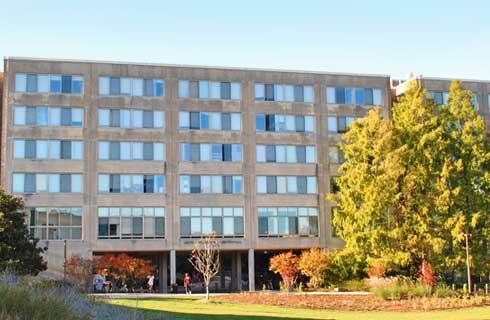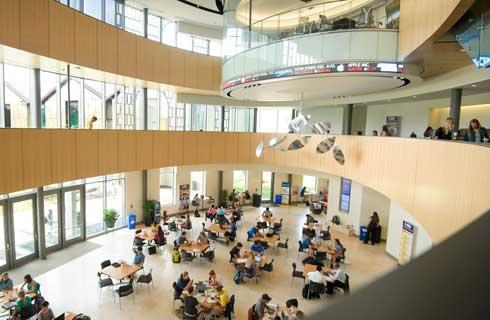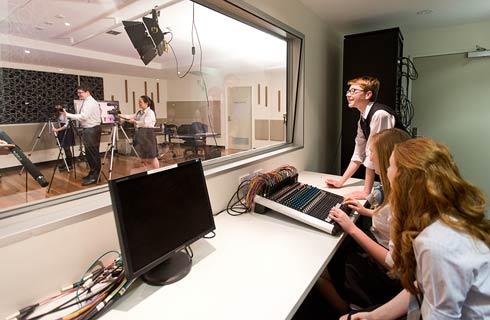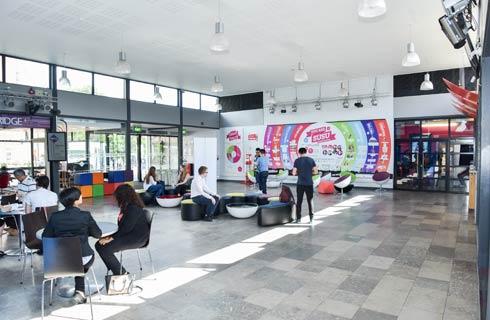工学(荣誉)化学工程
MEng (Hons) Chemical Engineering

学历文凭
Bachelor Degree

专业院系
Chemical Engineering

开学时间

课程时长

课程学费

国际学生入学条件
IDP—雅思考试联合主办方

雅思考试总分
- 雅思总分:
- 托福网考总分:
- 托福笔试总分:
- 其他语言考试:
CRICOS代码: H803
申请截止日期: 请与IDP联系 以获取详细信息。
课程简介
Chemical Engineering is a highly adaptable and versatile area of engineering, which applies the principles of chemistry, physics, mathematics, biology, and economics to transform energy and materials into useful and affordable products. It covers the research, design and operation of new and existing processes, to minimise environmental impacts, ensure compliance with legal and ethical standards and maximise profits and benefits to society.The 2020 annual skills survey for UK engineering employers highlighted an expected shortfall in skilled chemical engineers to support the UK’s green recovery and net-zero targets, which means chemical engineers will be highly sought after for the specialist work required.Chemical engineers take leading roles in many different sectors, ranging from energy and water, food, healthcare and pharmaceuticals, to consumer products, and even finance. They use their technical know-how and ingenuity to develop solutions to many of the world’s most pressing challenges, including climate change and the large-scale production of new vaccines.At Loughborough, we conduct world-leading research to drive the sustainable revolution, in areas such as low-carbon technologies, next generation healthcare or advanced manufacturing. An example is our new National Centre for the Circular Chemical Economy, which seeks to transform the UK chemical sector to eliminate waste and reliance on fossil technologies. Our research directly informs our teaching and project work, ensuring our students are fully equipped to meet 21st century challenges.Our Chemical Engineering degrees teach students how to apply scientific and engineering principles to the design and analysis of chemical process equipment and flow sheets. Bench and pilot-scale laboratories, VR simulation, computer classes and project work help students to understand and apply taught principles to engineering problems, whilst also developing key laboratory, teamwork and IT skills.We offer a number of options during the degree. These include language options in years one and two (at different levels) in either French, German, Spanish or Mandarin, as an alternative to Materials Processing and Food Engineering. Our students can then choose up to three optional modules in their third year including management, environmental, IT, bioprocessing and healthcare topics, and four options in Year 4 for more in-depth focus on aspects of the degree or expanding their knowledge across disciplinary boundaries. During the final design project, students work both in teams and individually to conceptualise and design an industrial plant to address a specified design challenge, usually aligned with their module choices and research strengths of the department. The project brings together all aspects of the degree, including initial technology selection and flowsheet development, detailed design of individual unit operation, process optimisation, safety and operability analysis and finally full economic and environmental evaluation.During the MEng degree, you will also complete a Professional Development Project (PDP), where you can join a research group at Loughborough, in industry or abroad, to develop new knowledge in science or engineering. The PDP is an excellent opportunity to gain first-hand insight into our ground-breaking research, whilst acquiring key transferable skills, such as project planning, reporting and data analysis. Recent projects have ranged from electrochemical harvesting of CO2 for renewable chemical production, the development of microfluidic manufacturing devices, or the application of artificial neural networks to predict material behaviour.
相关申请
 预科
预科 奖学金
奖学金 实习机会
实习机会 在校学习
在校学习 跨境学习
跨境学习 校园授课-线上开始
校园授课-线上开始 在线/远程学习
在线/远程学习
开学时间&学费
学费信息仅供参考,请与IDP联系以获取详细信息
| 开学时间 | 时长 | 学费 | 地点 |
|---|
学校排名

世界排名401
数据源:
泰晤士高等教育世界大学排名
关于拉夫堡大学

拉夫堡大学自1909年以来,作为继续教育和高等教育机构,拥有悠久的成功历史。如今,它是英国乃至世界领先的教育机构之一。该大学每年为成千上万的学生提供一流的教育和学习体验,并始终位列英国前十(《完全大学指南》,2017-2026)。拉夫堡大学的体育学科享誉全球,并被评为全球体育相关学科最佳大学(《QS世界大学学科排名》,2017-2025)。该大学以其各学科卓越的教学质量而自豪,并招募了一支多元化、多国籍的学术团队,确保学生接受由专业且经验丰富的教职员工提供的多样化教育。大学为包括工程、设计、商业等在内的所有学科领域提供卓越的设施。学校包容性的校园热烈欢迎国际学生,并提供广泛的支持设施,帮助他们在整个学习期间安顿下来并茁壮成长。大学设施齐全,致力于为学生提供卓越的学术体验和有趣的学生生活方式。学校拥有多元化的学生会、轻松的学习和社交空间以及全面的学生支持服务。大学的主校区位于东米德兰兹郡的拉夫堡镇。该校区交通便利,可轻松前往周边大城市,并为学生提供愉快的学习体验所需的一切。第二个校区位于伦敦伊丽莎白女王奥林匹克公园。拉夫堡大学的伦敦校区专为研究生学习和研究而设立。拉夫堡大学伦敦分校汇聚了具有影响力的思想领袖、先锋研究人员和富有创造力的创新者,为学生提供英国最优质的研究生学习体验之一。
本校相关课程

会前课程C
学历文凭
English Language
开学日期
课程费用总额


博士学位体育,运动与健康科学
学历文凭
Ph.D.
开学日期
课程费用总额


PhD International Relations, Politics and History
学历文凭
Ph.D.
开学日期
课程费用总额


物理学博士
学历文凭
Ph.D.
开学日期
课程费用总额


机械,电气与制造工程博士学位
学历文凭
Ph.D.
开学日期
课程费用总额


博士数学科学
学历文凭
Ph.D.
开学日期
课程费用总额

其他相关课程

工程学硕士(采矿)
 阿德莱德大学
阿德莱德大学学历文凭
Masters Degree (Coursework)
开学日期
课程费用总额


专业工程学硕士(化学和生物分子)
 悉尼大学
悉尼大学泰晤士高等教育世界大学排名:54
学历文凭
Masters Degree (Coursework)
开学日期
课程费用总额


工学学士(荣誉学位)(化学)
 阿德莱德大学
阿德莱德大学学历文凭
Bachelor Degree with Honours
开学日期
课程费用总额


石油工程研究生文凭
 科廷大学
科廷大学泰晤士高等教育世界大学排名:256
学历文凭
Graduate Diploma
开学日期
课程费用总额


工学学士学位(石油工程)(荣誉学位)
 科廷大学
科廷大学泰晤士高等教育世界大学排名:256
学历文凭
Bachelor Degree with Honours
开学日期
课程费用总额


加工厂技术文凭
 西澳大利亚州职业技术学院
西澳大利亚州职业技术学院学历文凭
Diploma
开学日期
课程费用总额










 英国
英国